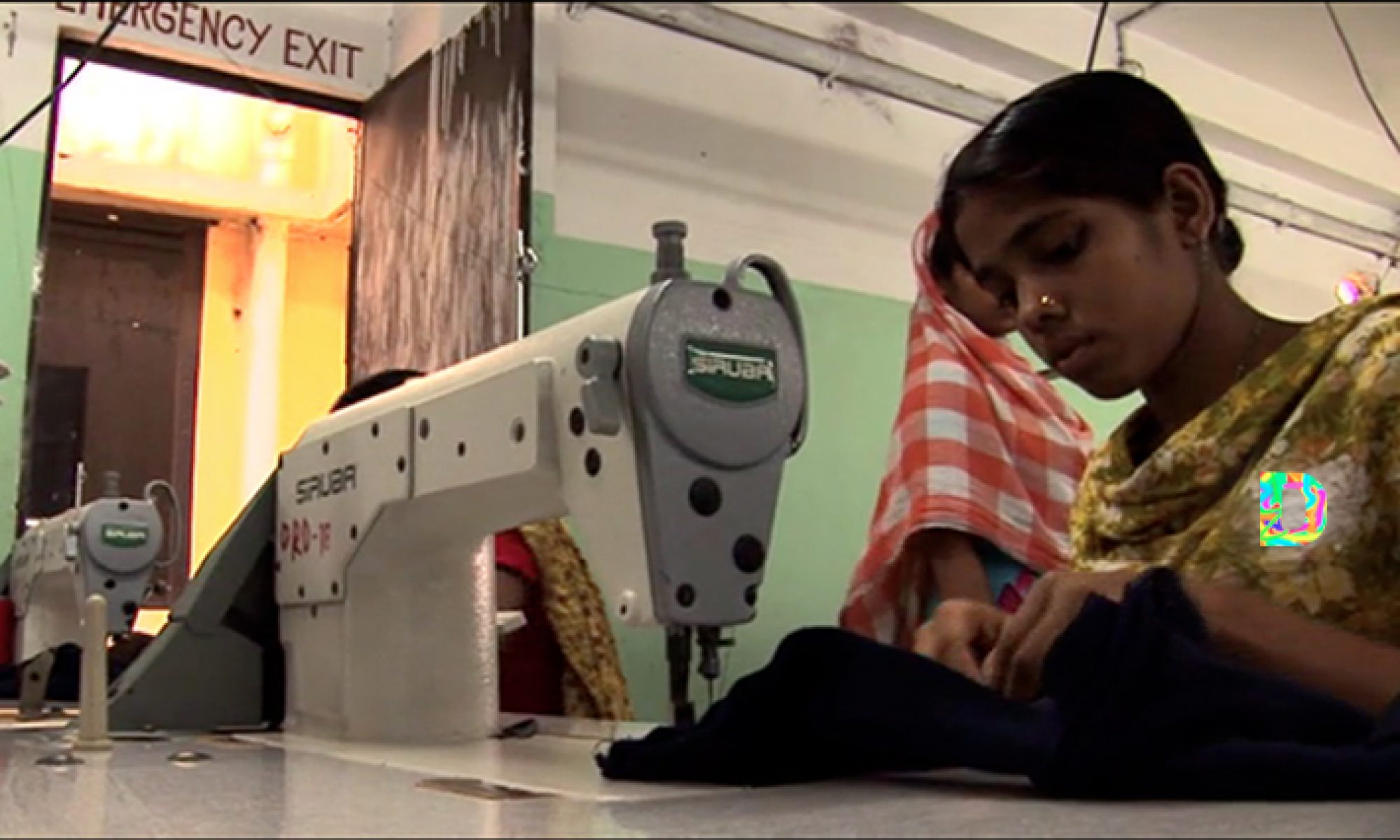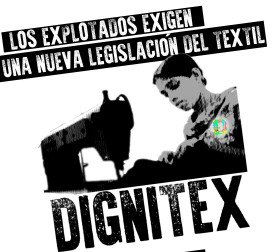Sorry, this entry is only available in European Spanish.
(Español) Grupos parlamentarios por los derechos de los trabajadores del textil.
(Español) 12 horas de trabajo por 1 euro al día, la realidad de la explotación infantil
Dignitex claims over the other side of the story of fashion facing the Fashion Week Madrid
A woman is weaving between red fabrics in Plaza Callao in Madrid. At his feet, dummies lying on the floor. It is a human sculpture that represents the precariousness of the working conditions of the textile industry.
At the same time, the ‘Mercedes-Benz Fashion Week Madrid’ (MBFWM) takes place at the Feria de Madrid (IFEMA), 40 minutes by metro and 20 minutes by car. It started this Thursday and is its 66th edition. There, the main fashion brands, in 47 fashion shows, will present until Tuesday their new collections for the Fall-Winter 2017 season. Continue reading “Dignitex claims over the other side of the story of fashion facing the Fashion Week Madrid”
Exploitation victims urge for a due binding legislation
Sign the petition for the European Commission at ww.dignitex.org
THE VICTIMS OF EXPLOITATION DEMAND NEW LEGISLATION FOR THE TEXTILE INDUSTRY
The production chain of the textile industry leaves a trail of victims of exploitation in every stage of the manufacturing process: from the harvest of cotton in the hands of children in Uzbekistan, to the toxic dyeing of fabric in Bangladesh and the manufacturing of clothing under slavery conditions in Brazil.
The constant search for lower prices and shorter delivery dates results in exploitation, slavery or death for men, women and children. Textile multinationals such as H&M, Mango, Inditex or El Corte Inglés have often been reported for their employees working conditions. The companies repeatedly claim that responsibility ultimately lies in the hands of their outsourced
suppliers and current legislation sometimes excludes them from liability.
In April 2017, the European Parliament approved a report calling upon the European Commission to implement new, mandatory legislation ensuring that textile multinationals are responsible for all human rights violations in the manufacturing chain, and also in their subsidiaries and suppliers.
In solidarity with the victims of exploitation in the textile industry and in support of their fights, we believe this is a historical landmark to take steps towards a world where every worker´s rights are respected.
It is for this reason that we demand of the European Commission and our political representatives that they effectively implement the European Parliament´s petition and that a new binding legislation guaranteeing human rights in the textile industry´s production chain is introduced as soon as possible.





